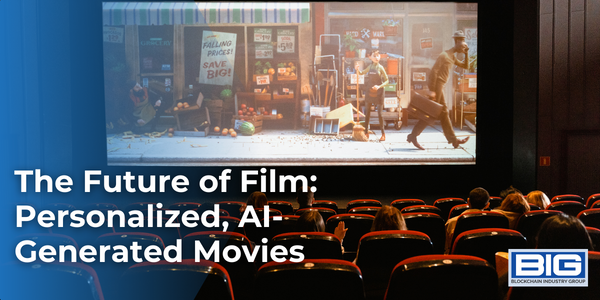
As artificial intelligence (AI) continues to advance and computing power increases, it is becoming increasingly clear that everything that can be digitized can also be generated by AI. This includes movies, which means that actors and filming locations may soon become obsolete.
Imagine being able to request an AI to generate a movie with specific actors, plot, and location, all customized to your personal preferences. Such a scenario would allow individuals to create their own movies from scratch for personal viewing, completely eliminating the need for actors and the entire industry around filming.
This scenario is made possible by the increasing capabilities of AI and the vast amount of data available for it to learn from. By analyzing patterns and trends in existing movies, an AI could potentially be trained to generate new movies based on specific prompts or requests. For example, if a user wanted a romantic comedy set in Paris with a certain actor in the lead role, the AI could generate a movie with a plot and script that fits these requirements, and even create realistic digital versions of the specified actors and locations.
While this may seem like a convenient and personalized way to consume media, it also has the potential to completely disrupt the entertainment industry as we know it. Actors, directors, and crew members would no longer be needed to bring a movie to life, as the AI could handle every aspect of movie creation. This would also eliminate the need for physical filming locations and could potentially lead to the demise of traditional movie theaters, as personalized, digital movies could be easily watched at home on any device.
The rise of AI-generated movies has the potential to significantly disrupt the entertainment industry and the economy as a whole. For those working in the film industry, this technology could lead to the loss of jobs and careers. Actors, directors, crew members, and others involved in the production of movies would no longer be needed if an AI can generate a film from start to finish.
The impact on the economy would also be significant, as the film industry is a major contributor to GDP and employment. In the United States alone, the motion picture and video industry contributed over $41 billion to the economy in 2019 and employed over 2.5 million people. If AI-generated movies were to become the norm, it is likely that this contribution would decline significantly, potentially leading to a decline in economic growth and an increase in unemployment.
Competitive Edge with Revolutionary AI
—
Creative Arts and the Disruptive Impact of AI
—
Financial Services and the Disruptive Impact of AI
Additionally, traditional film aggregators such as Netflix, Prime, and Hulu would no longer be needed if individuals are able to create their own personalized movies using AI. These companies rely on the production and distribution of pre-existing movies and TV shows to generate revenue, so the shift to AI-generated content could greatly impact their business models and financial success.
Overall, the rise of AI-generated movies has the potential to greatly disrupt the entertainment industry and have far-reaching economic consequences. It is important for those in the industry to be aware of these potential developments and to consider the potential impact on their careers and the economy as a whole.



